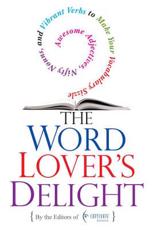Stone Angel comes alive
Tuesday, October 28, 2008 by kate
It’s hard to imagine a woman in her 30s could know the mind of a 90-year-old woman, but Margaret Laurence writes so vividly in “The Stone Angel” that you can almost feel the weariness of time settle in your own bones.
Laurence was only 38 when she wrote about Hagar Shipley – an unlikable, stubborn woman who somehow wins you over as she struggles to accept her waning body and mind. Born to a successful merchant in a fictional prairie town of western Canada, Hagar floats between past and present, uncovering a woman whose pride prevented her from fully living or loving.
“Pride was my wilderness, and the demon that led me there was fear. I was alone, never anything else, and never free, for I carried my chains within me, and they spread out from me and shackled all I touched.”
Hagar’s mother dies during childbirth, her brother dies of pneumonia, she loses touch with her father when she marries a man he disapproves of, and eventually loses her son to the life she never wanted for him.
Laurence was only 38 when she wrote about Hagar Shipley – an unlikable, stubborn woman who somehow wins you over as she struggles to accept her waning body and mind. Born to a successful merchant in a fictional prairie town of western Canada, Hagar floats between past and present, uncovering a woman whose pride prevented her from fully living or loving.
“Pride was my wilderness, and the demon that led me there was fear. I was alone, never anything else, and never free, for I carried my chains within me, and they spread out from me and shackled all I touched.”
Hagar’s mother dies during childbirth, her brother dies of pneumonia, she loses touch with her father when she marries a man he disapproves of, and eventually loses her son to the life she never wanted for him.
The simple prose pulls you through heartbreaking moments that aren’t overly sentimental, making them even more stirring.
“I straightened my spine, and that was the hardest thing I’ve ever had to do in my entire life, to stand straight then. I wouldn’t cry in front of strangers, whatever it cost me. But when at last I was home …. I found my tears had been locked too long and wouldn’t come now at my bidding. The night my son died I was transformed to stone and never wept at all.”
Through the story of a stern woman Laurence also dusts off old age itself.
“My satin nightgown, rumpled and twisted, hampers and hobbles me. I seem to be rather shaky. The idiotic quivering of my flesh won’t stop. My separate muscles prance and jerk. …I shuffle slowly, thinking how peculiar it is to walk like this, not to be able to command my legs to pace and stride.”
If you never had to read this book for school, pick up a copy for one of those cold winter weekends coming up. And if you did read it in school, dust off that copy and read it again. You’ll enjoy it more now.
(For those of you who refuse to read anything that isn’t glossy, instructional or in email form, visit co-Captivator Justin Anderson’s blog for a review of the film version of this book.)
Previous Post: Confessions of an Eco-Sinner
Labels: book review, Margaret Laurence, Stone Angel





 I’m a coffee addict with a book fetish. I dream of having a third hand so I can sip my double-tall nonfat-no-whip toffee nut latte and turn pages at the same time. Really neat book covers call to me. When I'm not working as an editor for Captivate Network, I'm scurrying around town, looking for fuel to feed my inner bookworm.
I’m a coffee addict with a book fetish. I dream of having a third hand so I can sip my double-tall nonfat-no-whip toffee nut latte and turn pages at the same time. Really neat book covers call to me. When I'm not working as an editor for Captivate Network, I'm scurrying around town, looking for fuel to feed my inner bookworm.
